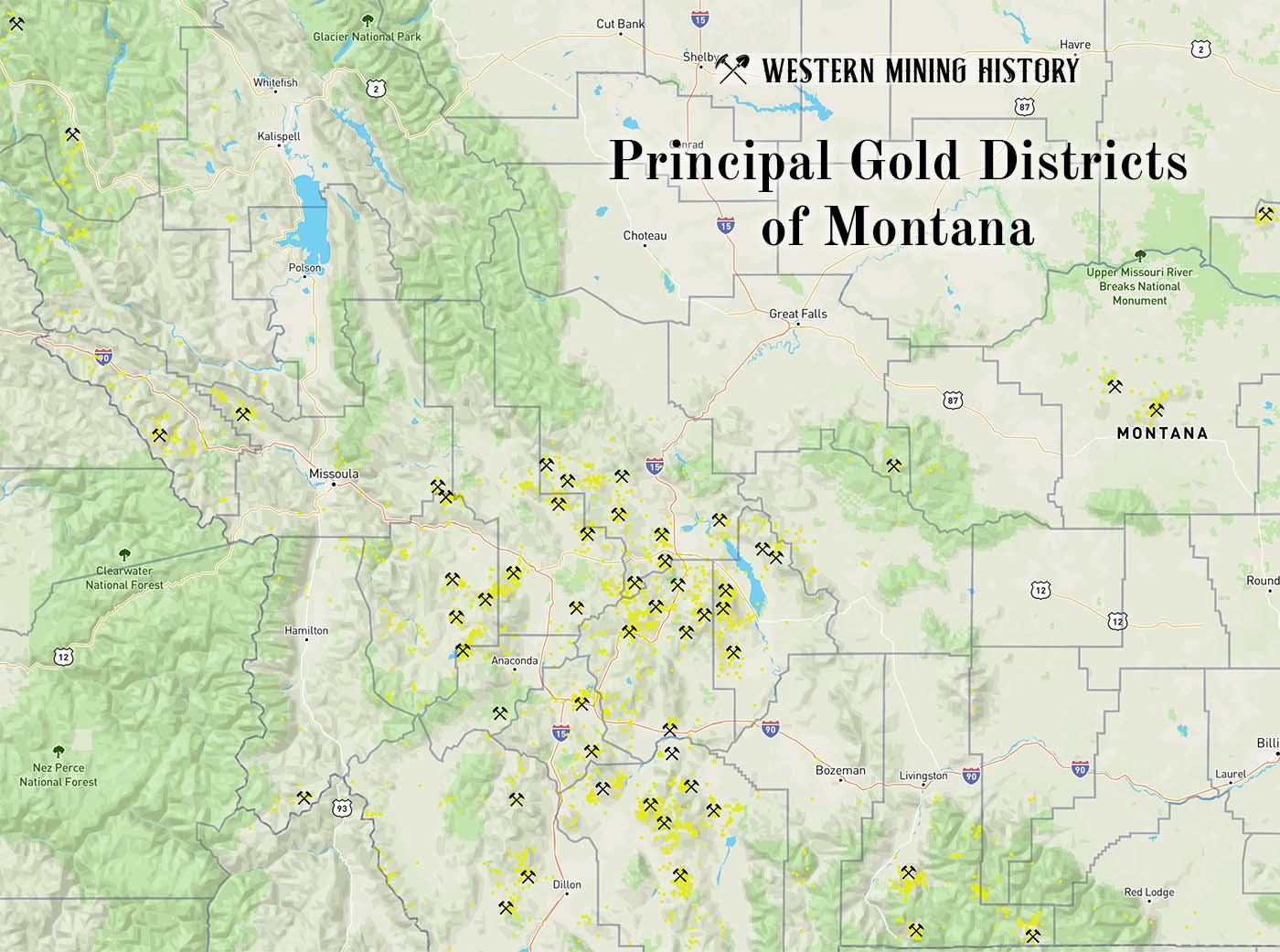The True Fissure Mine is a lead and silver mine located in Mineral county, Montana at an elevation of 4,400 feet.
About the MRDS Data:
All mine locations were obtained from the USGS Mineral Resources Data System. The locations and other information in this database have not been verified for accuracy. It should be assumed that all mines are on private property.
Mine Info
Elevation: 4,400 Feet (1,341 Meters)
Commodity: Lead, Silver
Lat, Long: 47.41778, -115.33194
Map: View on Google Maps
True Fissure Mine MRDS details
Site Name
Primary: True Fissure Mine
Commodity
Primary: Lead
Primary: Silver
Secondary: Copper
Location
State: Montana
County: Mineral
District: Unorganized
Land Status
Land ownership: National Forest
Note: the land ownership field only identifies whether the area the mine is in is generally on public lands like Forest Service or BLM land, or if it is in an area that is generally private property. It does not definitively identify property status, nor does it indicate claim status or whether an area is open to prospecting. Always respect private property.
Holdings
Not available
Workings
Type: Underground
Ownership
Owner Name: Day Mines, Inc.
Production
Not available
Deposit
Record Type: Site
Operation Category: Occurrence
Operation Type: Unknown
Discovery Method: Unknown
Years of Production:
Organization:
Significant: N
Deposit Size: S
Physiography
General Physiographic Area: Rocky Mountain System
Physiographic Province: Northern Rocky Mountains
Physiographic Detail: Coeur D'Alene Mountains
Mineral Deposit Model
Not available
Orebody
Not available
Structure
Type: R
Description: A Major Structural Grain Trends Nw And Consists Of Subparallel Faults And Folds. Major Fault Is The Osburn. This Fault Seems To Demarcate A Change In Folding Form With Folds To The North Showing Signs Of More Intense Structural Deformation Than Those To The South.
Type: L
Description: Owing To Its Proximity To The Osborn Fault Beds Are Greatly Deformed And Are In Tight, Overturned, Nearly Isoclinal Folds
Alterations
Alteration Type: L
Alteration Text: Hydrothermal Bleaching Is Common Within A Belt Approx 1 Mi Wide Along The North Side Of The Osburn Fault Zone. It Has Been Used As A Guide To Ore Deposits.
Rocks
Name: Quartzite
Role: Host
Age Type: Host Rock
Age Young: Neoproterozoic
Analytical Data
Analytical Data: SAMPLES TAKEN FROM THE LOWER ADIT ARE REPORTED TO CONTAIN 1-3 OZ/TON AG AND 5-10% OF LEAD
Materials
Ore: Chalcopyrite
Ore: Galena
Gangue: Siderite
Gangue: Hematite
Gangue: Quartz
Gangue: Pyrite
Comments
Comment (Location): ON EAST TWIN CREEK.
Comment (Deposit): VEIN STRIKES NORTH WHICH IS UNUSUAL COMPARED TO OTHER VEIN TRENDS WITHIN THE REGION.
Comment (Workings): WORKINGS CONSIST OF 3 ADITS ONLY 2 OF WHICH ARE ACCESSIBLE.
References
Reference (Analytical Data): SRC.REF: WALLACE, R. E. AND HOSTERMAN, J. W., 1956 : US GEOLOGICAL SURVEY BULL. 1027-M
Reference (Deposit): WALLACE, R. E. AND HOSTERMAN, J. W., 1956 , RECONNAISSANCE GEOLOGY OF WESTERN MINERAL COUNTY MONTANA: US GEOLOGICAL SURVEY BULL. 1027-M, P. 607 .
Reference (Deposit): CONSV. DIV. COMP. DATE, 02-15-1963
Principal Gold Districts of Montana

In Montana, 54 mining districts have each have produced more than 10,000 ounces of gold. The largest producers are Butte, Helena, Marysville, and Virginia City, each having produced more than one million ounces. Twenty seven other districts are each credited with between 100,000 and one million ounces of gold production. Read more: Principal Gold Districts of Montana.